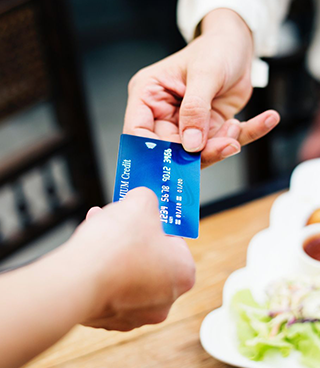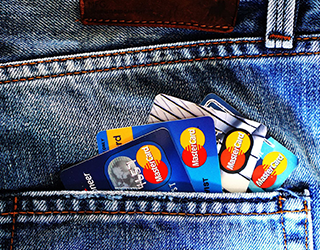An Introduction to credit card
A credit card comes in the form of plastic card which lets you access your credit limit through an ATM machine. A credit limit is assigned to you by your bank as per your spending capacity. A credit limit is like a loan. However instead of giving you the whole loan in one go, banks allows you to use your limit as per your need.
How Do Credit Cards Work
There is a whole process behind a credit card transaction. When you make a purchase using your credit card, the merchant's credit card terminal makes a query to your credit card provider, if the card is valid and if it have the required spending limit remaining, answering the query your credit card provider response the merchant’s credit card terminal, if the transaction is approved or not.
At every spend you make by your credit card, your credit limit goes down by that particular amount. For example- if you have a credit limit of Rs. 50,000 and you have spent Rs.10,000 on a product, your credit limit will reduce to Rs. 40,000 and you’ll owe Rs. 10,000 to bank as an outstanding balance which you need to pay at the end of your billing cycle.
The basic difference between a credit card and a personal loan is that your credit limit will be available again onec you pay the outstanding balance due on your card. In the example mentioned above., if you paid back the Rs.10,000 that you owed, you'd have Rs. 50,000 of available credit again.
The Major difference between a credit card and a loan is that you can use the credit limit of the card in packets as per your requirement and also n times by paying off your outstanding balance, where as in loan, bank offers you a certain amount in one go, which you can use only once.
What are late payment charges?
There is a certain period of time before the interest charged on your credit card out standing balance. This time is called the grace period, this period varies as per the bank. Usually it is of 20 to 25 days. If you do not pay your credit card outstanding amount within the grace period, then a particular interest is charged on the amount due on your credit card.
The interest rate is the annual rate you pay for using your credit limit. Interest rates depends on few factors like market interest rates, your credit history, and the credit card you own. If you have a good history of paying back your credit card bills then you’ll be charged lower interest rate.
If you want to avoid interest you have to pay your credit card bill before the grace period get over, though the credit card providers do not want you pay the whole outstanding balance in one go, you can also pay the minimum amount against your credit card bill. Paying only the minimum is the slowest and most expensive way to pay off your credit card balance.
It is most important to pay at least minimum amount of your credit card bill in order to maintain a good credit score and to avoid late payment charges.



